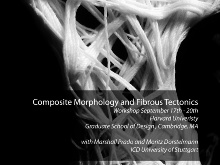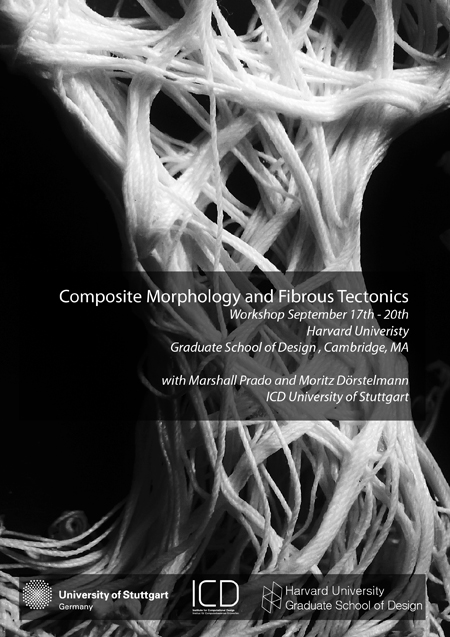A new understanding of the material in architecture is beginning to arise. No longer are we bound to conceive of the digital realm as separated from the physical world. Instead we can begin to explore computation as an intense interface to material and vice versa. Thus materiality no longer remains a fixed property and passive receptor of form, but it transforms into an active generator of design and an adaptive agent of architectural performance. Accordingly, and in contrast to linear and mechanistic modes of fabrication and construction, materialization now begins to coexist with design as explorative robotic processes. This presents a radical departure from both the trite modernist truth to materials and the dismissal of material altogether as emblematic for the previous generation of digital architecture.
Based on an understanding of the micro-scale material make-up, meso-scale material system and macro-scale architecture as reciprocal and instrumental relations, students will investigate biological and technological fibrous systems, experiment hands-on with robotic fiber lay-up and filament winding processes, and pursue the development of fibrous tectonics in architecture as novel spatial, structural and ecological potentials. They will engage with a computational design approach that conceives of materiality and materialization as an active generator of form, space and structure, which enables the uncovering of novel, performative capacities and hitherto unexplored architectural possibilities.
The workshop explores the notion of material performance, its manifold and its deep interrelations with technology, biology and culture as a central field of architectural inquiry. It seeks to trace the emergence of new material cultures within the context of the ever accelerating integrative technologies of design computation and robotic fabrication, with a particular focus on advanced fiber composite materials. Students will be introduced to procedural techniques for robotic fabrication and explore algorithmic process description.
The workshop is supported by the Harvard University Graduate School of Design including technical support from Rachel Vroman in the Fabrication Laboratory.
Basic knowledge with Rhino 5.0 is required and understanding of Grasshopper is beneficial. The workshop will explore integrative robotic programming techniques using a custom scripted interface.
The workshop is fully booked.
Schedule Initial research (completed prior to workshop)
Wednesday, September 17
Introductory Lecture: Fibrous Morphologies
Review: Preliminary Research
Project Contextualization
Thursday, September 18
Tutorial: Robotic Programming for 2D fiber winding
2D Robotic Winding Demonstration
Group 2D Winding Development
Friday, September 19
2D Winding Experiments
Tutorial: Robotic Programming for 3D winding
3D Concept Development
Saturday, September 20
3D Experiment Production
Review: Workshop Outcomes



